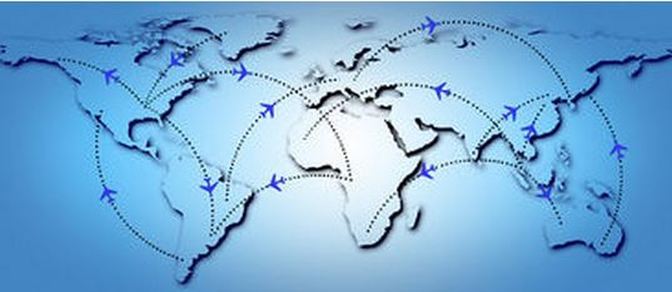|
As a sport scientist, coach advisor and professional triathlete, I’m often asked what's the best way to prepare for international competition. In this three part series I’ll cover everything you need to know from planning your trip, preparing your mind and body for your key competition, and lastly, ensuring you arrive at your destination feeling fresh, healthy and ready to perform at your best.
Plan Ahead With busy race schedules, injuries/illness, work and other life commitments, it’s not always easy planning too far in advance for some racers. However, where ever possible try to plan as far ahead as possible and arrange your trip accordingly. Things to take into consideration when planning your trip should include:
14 Comments
13/2/2019 12:01:44 am
In every competition we try to join in, it is important to have preparation, a bunch of preparation especially if you want to win. We all know that it's not totally about winning, but a good performance that will impress people as well as yourself isa really important. What's the point of joining a competition, regardless if it is local or international if you will not make changes for yourself and have some preparation? It doesn't make sense at all! That's why passion is important!
Reply
crazy shrawan
26/7/2023 03:46:59 am
This product is the secret to my weight loss success. It helped me shed an impressive 35kg, going from 100kg to a healthy 65kg. Don't wait any longer - <a href="https://www.digistore24.com/redir/348582/kittu1920/" target="_blank">click here</a> to order now and see the difference!
Reply
6/2/2024 09:20:21 pm
le sourcing est adapté à la production du chocolat. La jeunesse du terrain et le chocolat pour toutes les options. Les thèmes impliquaient la lutte pour l’utilisation des données financées dans le sens de l’approbation du style destiné aux citoyens.
Reply
17/4/2024 08:18:59 pm
Vacation rental properties are often managed by local hosts or property management companies, providing guests with personalized service and local recommendations.
Reply
17/4/2024 08:44:18 pm
The organic revolution extends beyond agriculture, influencing dietary choices, food systems, and policies promoting sustainable development.
Reply
17/4/2024 09:00:55 pm
Eyebrow services have become increasingly popular in recent years, offering individuals the opportunity to enhance their facial features with precision and artistry.
Reply
17/4/2024 09:28:34 pm
Investing in regular maintenance and prompt repairs is essential for ensuring the long-term functionality and safety of garage doors. Professional technicians provide reliable service to keep garage doors operating smoothly and securely.
Reply
17/4/2024 09:46:17 pm
Roof repair services may also provide additional services like roof sealing or coating to enhance the roof's waterproofing and UV protection properties. These services help in prolonging the life of the roof and reducing maintenance requirements.
Reply
17/4/2024 10:02:29 pm
Unlike adversarial court battles, mediation aims to preserve relationships, especially when children are involved. It fosters a cooperative environment, minimizing the emotional toll on all parties.
Reply
17/4/2024 10:16:29 pm
Rain poured down as the moving van navigated slick roads, a testament to resilience amidst change.
Reply
18/4/2024 12:42:21 am
Go Pro Garage Door Repair is known for its transparent pricing policy. Clients receive upfront quotes without hidden fees allowing them to make informed decisions.
Reply
18/4/2024 12:54:25 am
PPF is customizable, available in various thicknesses and finishes to suit different preferences and levels of protection.
Reply
18/4/2024 01:18:18 am
Eating a balanced diet rich in fruits, vegetables, and omega- body contouring barrie fatty acids can support overall skin health and radiance.
Reply
Leave a Reply. |
AuthorBrodie Gardner has a Masters in Exercise Physiology, Honours in Sports Science and competes as a professional triathlete. He has a long history working with elite athletes and has provided consultation services to numerous Australian sporting associations. Archives
January 2021
Categories |


 RSS Feed
RSS Feed